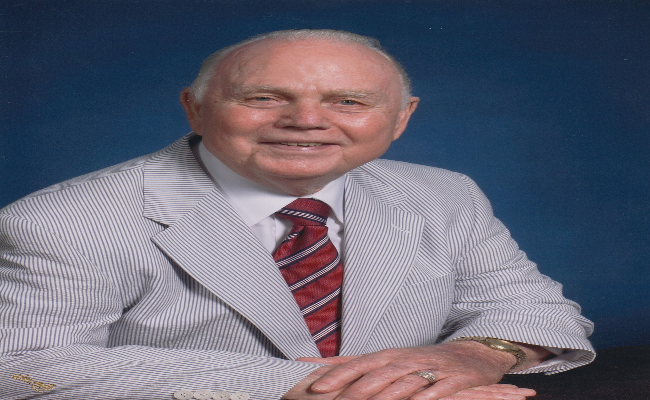Charles Blackwell Obituary: A Legendary Music Arranger’s Legacy
Charles Blackwell, a pivotal figure in 1960s pop music, leaves behind a rich musical legacy.

Charles Blackwell’s obituary reflects a life dedicated to shaping the sound of a generation. As a highly regarded composer and arranger, his work spanned across multiple genres and decades, leaving an indelible mark on pop music. Known for iconic collaborations with Tom Jones and Engelbert Humperdinck, Blackwell’s orchestrations elevated numerous chart-topping hits. His career serves as a testament to the power of music in connecting generations, making him a true icon in the world of entertainment.
Early Life and Career Beginnings
Charles Blackwell was born on May 3, 1940, in London, England. He displayed an early passion for music, beginning piano lessons at a young age. His formative years were spent exploring classical music, jazz, and pop, setting the foundation for his career. Blackwell’s musical talents caught the attention of several industry veterans, and by the early 1960s, he was a rising star in the world of music arrangement and composition.
By the age of 20, Blackwell had already begun working with legendary producer Joe Meek, a pivotal point in his career. Under Meek’s mentorship, Blackwell learned the art of sound engineering and orchestration, honing his skills to later collaborate with some of the biggest names in the music industry.
Collaborations with Music Icons
Blackwell’s career took off in the 1960s, a decade known for its musical revolutions. His collaboration with Tom Jones is perhaps one of the most defining moments of his career. Blackwell arranged one of Jones’ most famous hits, “What’s New Pussycat?”, which showcased his unique ability to combine orchestral elements with pop sensibilities.
Engelbert Humperdinck also benefited from Blackwell’s magic touch. The iconic ballad “Release Me” became a worldwide sensation in 1967, largely due to Blackwell’s poignant string arrangements that gave the song its timeless appeal. This hit song is not only a testament to Humperdinck’s vocal prowess but also to Blackwell’s knack for creating arrangements that resonate with listeners.
The Art of Music Arrangement
Charles Blackwell wasn’t just an arranger; he was a musical visionary. His expertise in translating raw melodies into full-fledged orchestral arrangements was unparalleled. He had a deep understanding of harmony, counterpoint, and orchestration, which allowed him to work across various genres—from pop and rock to film scores.
Blackwell’s work extended beyond just pop music. He composed and arranged for films, adding depth and emotion to soundtracks that accompanied pivotal scenes. His ability to blend different musical textures was not just a skill; it was an art form that few could replicate.
Influence on 1960s Pop Music
The 1960s saw a musical explosion, and Charles Blackwell was at the heart of it. His ability to collaborate with artists across different genres made him a versatile figure in the industry. Whether it was rock, pop, or ballads, Blackwell knew how to enhance a track’s appeal without overshadowing the artist’s performance.
His innovative approach to music arrangement during this era earned him a reputation as one of the busiest arrangers of his time. He worked with artists such as Shirley Bassey, Dusty Springfield, and Billy Fury, among others. Each collaboration showcased his knack for creating unforgettable musical moments that stood the test of time.
Contributions to Film and Television
Beyond his contributions to pop music, Blackwell’s talents also extended to film and television. His work in the film industry further solidified his status as a versatile composer and arranger. He worked on several film scores throughout the 1960s and 1970s, helping to shape the mood and tone of various cinematic pieces.
One of his notable contributions was for the film What’s New Pussycat?, where his orchestral arrangements elevated the comedic elements of the movie while giving it a sophisticated musical touch. His ability to adapt his musical style to different genres, from comedy to drama, showcased his broad skill set and flexibility as a composer.
Legacy and Influence on Future Generations
Charles Blackwell’s influence on modern music cannot be overstated. He was more than just an arranger; he was a pioneer who pushed the boundaries of what popular music could achieve. His innovative techniques in sound production, particularly in blending orchestral arrangements with contemporary pop, continue to inspire musicians, composers, and producers today.
Modern artists and producers often cite Charles Blackwell’s work as a major influence. His ability to craft emotionally charged arrangements has become a benchmark for those looking to create timeless music. In an industry that is constantly evolving, Blackwell’s work serves as a reminder of the power of melody, harmony, and thoughtful arrangement.
Charles Blackwell’s Personal Life
Despite his busy professional life, Charles Blackwell maintained a relatively private personal life. He was married to his wife, Margaret, for over 50 years, and they had two children. Blackwell was known to be a humble, soft-spoken individual who preferred to let his music speak for itself. His family has described him as a loving father and husband, dedicated not only to his music but also to his family.
In his later years, Blackwell enjoyed spending time with his grandchildren, often playing piano for them and sharing stories from his illustrious career. He remained passionate about music until the very end, still offering advice to younger musicians and arrangers who sought his expertise.
Conclusion: A Lasting Musical Legacy
Charles Blackwell’s passing in August 2024 marked the end of an era, but his musical legacy will continue to influence generations of artists and listeners. His work during the 1960s, especially his collaborations with iconic musicians like Tom Jones and Engelbert Humperdinck, has cemented his place in music history. Blackwell’s talent for creating arrangements that complemented and elevated the artist’s voice has made him an unforgettable figure in the world of music.
As music continues to evolve, Charles Blackwell’s contributions remind us of the enduring power of thoughtful, expertly crafted arrangements. His ability to touch the hearts of listeners through his orchestrations will forever remain a testament to his remarkable career.



